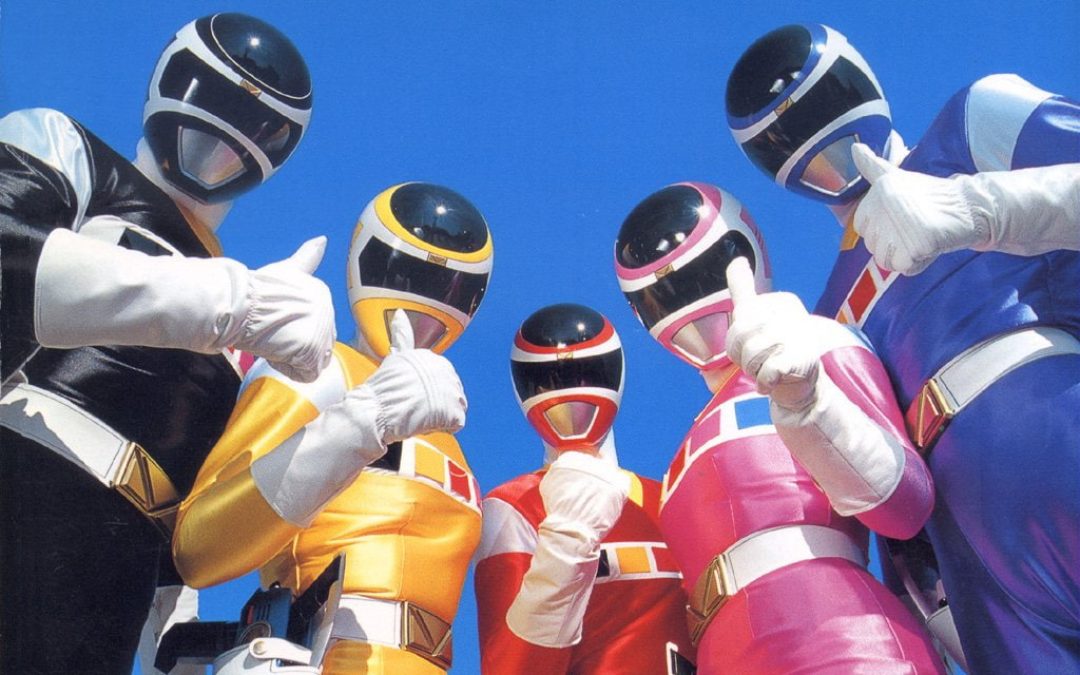Although Power Rangers is a well-known series with a long history, it demands a major suspension of disbelief, like many shows of its kind. Older children’s television programs had some very original stories as well as some of the most cliche characters.
But many grownups still have a sweet spot in their hearts for them. Many children’s childhoods in the 1990s and early 2000s were influenced by TV shows like Pokémon and Detective Conan: Case Closed.
Power Rangers is one of the most famous children’s television series ever. The Power Rangers franchise has amassed enormous popularity over the years with a variety of programs, including Mighty Morphin Power Rangers, Power Rangers: Time Force, Power Rangers: SPD, and Power Rangers: Dino Thunder. Rewatching it with adult thinking in mind, though, makes some things seem downright absurd.
There are no signs of any civilians: Monsters in general are terrifying. Only heroes like the Power Rangers can protect people from the evil that they cause. However, once a threat has been recognized and the Power Rangers have intervened, there isn’t a single citizen in sight who could become collateral damage.
While witnesses abruptly vanish from the scene, monsters, Rangers, and robots all engage in combat. There are occasionally a couple of innocent bystanders who unintentionally fall victim to the monsters’ traps to advance the story, but they are the exception rather than the rule.
Property Damage Is Ignored: Superheroes’ brazen and guiltless destruction of property is a recurrent theme in all superhero-related media. The physical destruction of property is a frequent byproduct of the struggle for retribution, justice, or the truth, whether it be in films like The Avengers or The Batman, television shows like Moon Knight, or anime like My Hero Academia.
The Rangers receive no discipline from the government or demand of payment. They are not held accountable for the harm they cause to the city’s infrastructure, the lives, and homes of the locals, or even their actions.
Whenever the Rangers get their power boost, the villains wait: The enemies always wait for the heroes to morph, which is one of, if not the most, absurd things about the entire Power Rangers series, similar to what happens in Winx Club. A wardrobe change, using weaponry, and a self-introduction are all part of this drawn-out process.
Any villain worth their salt would like to launch an attack at this time to finish the conflict quickly and increase their chances of success. Villains also hold off on attacking the rangers until they have built a massive robot using Tetris with their cars.
Despite being a 5-v-1 battle, Rangers always lose the opening round: The majority of Power Rangers series have teams of five Rangers, occasionally with an extra team made up of some odd numbers of Rangers or an erratic sixth Ranger.
But even though they have the edge of numbers on their side, they consistently appear to lose battles against evil monsters and creatures. At times, Rangers use the power of friendship, just like in Yu Gi Oh, however, they are unable to complete their tasks in a single battle. It takes a lot out of them, even though they do manage to prevail in the end.
Government Reports Only the News: More frequently than is acceptable for any area with a realistic crime rate, monsters, and villains are a common occurrence in the Power Rangers universe.
Despite this, the government does little to truly address the issue that is causing their city problems, including sending in no military assistance, diplomatic representatives, or anything of the type.
The Rangers perform all of the heavy labor and purge the toxic aspects of society on behalf of the government, which completely depends on them. They merely offer the residents a warning and a report of what occurred.
Teens or young adults make up the majority of Rangers: However, at what price? Youth is the future. For the most part, young people between the ages of 18 and 24 are chosen for the Power Rangers program, where they are required to take on duties that most adults would find difficult.
Without disclosing their true identities, they are expected to develop their bodies, minds, and personalities to become excellent members of society.
Most parents put pressure on their kids to behave properly and become upstanding members of society, but when the same pressure comes from one’s job, it can have a variety of bad effects.
Rangers Don’t Have Family: Approximately 90% of the main characters in the Power Rangers franchise can still benefit from this, even though it might not apply to every Power Ranger.
The majority of Rangers are either orphans or of unknown ancestry, with no family members to identify them. Some people may have a family or two who appear in the series, but they tend to work for the Ranger Company as well.
People in the series who do have a family are almost always estranged from their family members, and this makes up a significant part of their personalities.
Rangers Don’t Seem to Be Getting Any Training: With a few notable exceptions, such as Power Rangers: SPD and Power Rangers: Time Force, the majority of Power Rangers series do not show the Rangers practicing and honing their skills.
In the majority of the series, rangers are only recruited, given a little orientation, and then left to their own devices on the battlefield with nothing more than posh gear and eye-catching tights.
Even though it’s part of their job description, fans hardly ever see these Rangers in training. Also unconcerned about these rangers’ training is the organization with which they are employed.
Each fight is between just one team: The majority of the franchise’s shows can boast several generations of Power Rangers teams, furthering the legacy of both the agency and the program. Some teams collaborate on certain shows.
However, the same crew is divided to cover the two places when several villains attack various locations. The original squad of rangers is supposed to level up and handle the threat without assistance, even if the opponent proves to be too powerful to destroy after two or three battles. Everyone, however, adores a good crossover episode!


